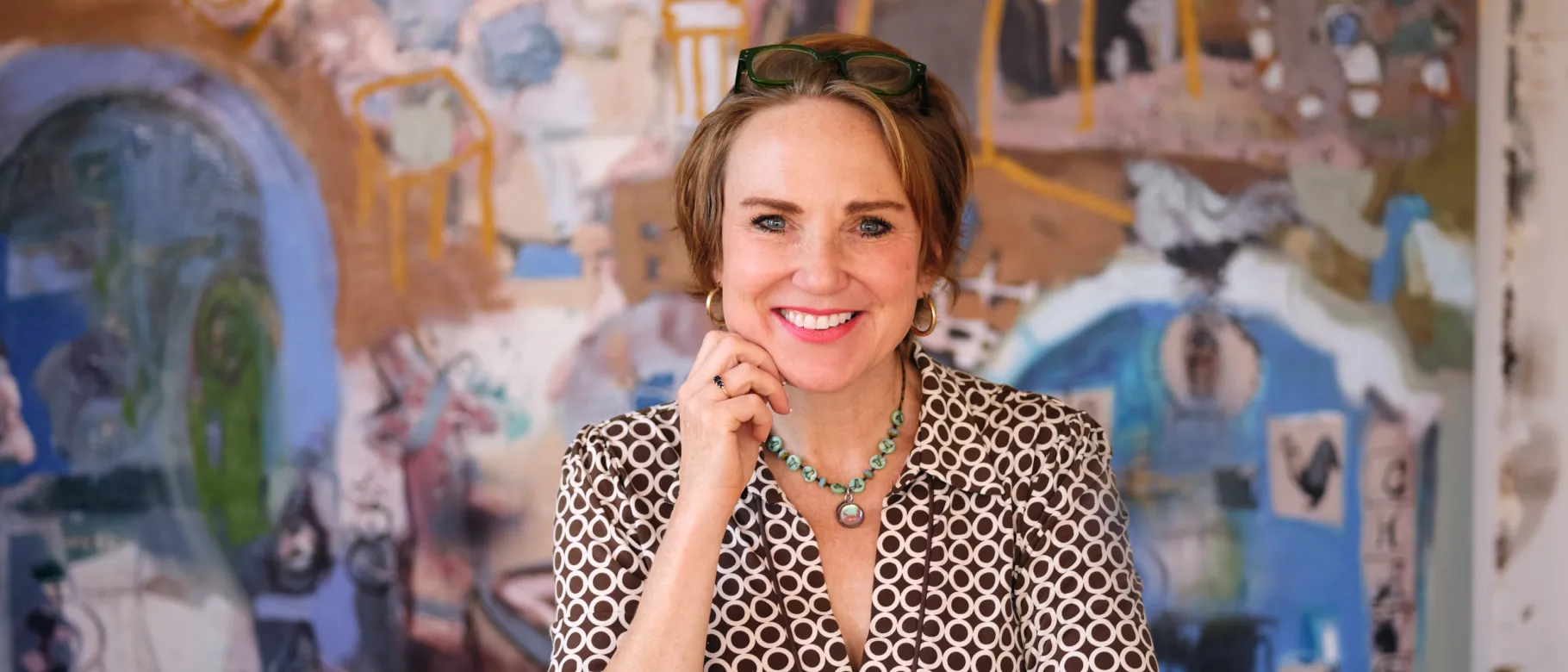UNE instructor explores cancer systems through art and science at Columbia University

University of New England adjunct instructor and mixed material artist Erin McGee Ferrell recently completed a residency at Columbia University to dive into the world of cancer systems through a combination of art and science.
McGee Ferrell specializes in embedding audio and video near field communications, or NFCs, into two-dimensional multimedia art. She experiments with thermochromic pigments and fluorescent powders in paintings to create multi-sensory visual experiences.
Working with the Navigating Cancer with Science and Art (NCSA) organization, she recently brought together scientists working in cancer systems biology, who have expressed cancer experiences and themes through their works, to explore the intersection between art and science in providing perspectives on cancer that cannot be attained through one perspective alone.
In the residency, McGee Ferrell worked with Diana Murray, a scientist at Columbia University’s Center for Cancer Systems Therapeutics (CaST), where the two exchanged roles to gain a sense of each other’s experiences. Murray spent time in McGee Ferrell’s studio, and McGee Ferrell was embedded in the Columbia CaST environment.
“My residency at Columbia University Cancer System’s Therapeutics Research team has been a transformative journey, bridging the realms of art and science to foster meaningful dialogue and actionable collaborative tasks,” McGee Ferrell said.
At Columbia University, McGee Ferrell delved into cell interactions between proteins, cancer systems biology, and cutting-edge therapeutics, focusing on visual communication’s role in explaining scientific concepts. Actively participating in academic discourse, Ferrell translated a Ph.D. dissertation into visuals, documented research, and prepared for a future visual art project.
As a culmination of the residency, she has been creating “White Board,” an interactive two-dimensional exhibition described as a visualization of connections and patterns observed, which will be finished later this year. McGee Ferrell said she hopes the exhibit will serve as a catalyst for collaboration.
“The residency provided a unique opportunity for me to experience, perturb, and transform CaST from a layperson’s viewpoint,” McGee Ferrell said. “This kind of residency exchange enables the generation of out-of-the-box thinking and interactions, which we will leverage into emergent discovery.”